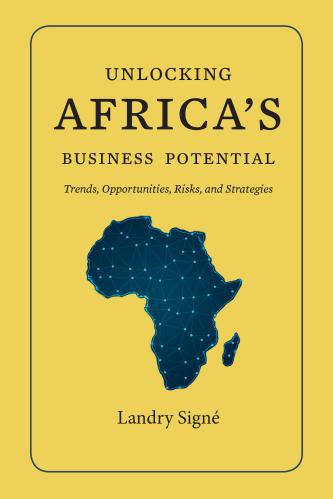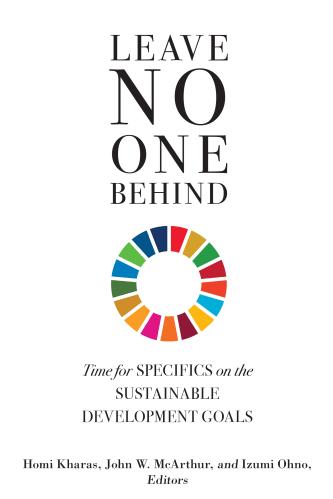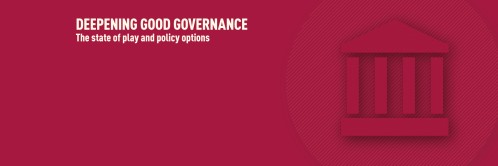Despite the positive narrative around the significant decline in extreme poverty around the world, not all the news is good. Still today more than 700 million people live with less than $1.90 a day, more than 72 percent of them in Africa. Worryingly, the COVID-19 pandemic could push a further 71 million people into extreme poverty under the baseline scenario, and 100 million under the downside scenario—wiping out progress made in poverty reduction since 2017. At the same time, income inequality is on the rise in most developed and developing countries.
How do these two divergent dynamics—decreasing poverty and rising income inequality—impact the income opportunities of the less fortunate, namely, the poorest 20 percent of the population? The good news, which I share in a recent paper, is that growth has been pro-poor globally as the income of the poorest 20 percent has increased with per capita income growth. For the average country in our sample, between the mid-1970s and the mid-2010s, I find that 1 percent growth in GDP per capita led to about a 1.4 percent increase in the income of the poorest 20 percent. Similar growth led to a decrease of about 2.3 percent in the poverty headcount ratio, measured as the percentage of people living on less than $2 a day. However, growth has not been inclusive as it did not significantly impact the growth of income share held by the poorest 20 percent. How, then, can governments promote pro-poor and inclusive growth? In my cross-country analysis on the main structural factors that impact pro-poor and inclusive growth with a special focus on the quality of governance (as measured by the Worldwide Governance Indicators on a scale from -2.5 to 2.5), four policy-relevant recommendations emerge. These are:
First, the combination of political, economic, and institutional features of good governance, especially the control of corruption and regulatory quality, improves the income of the poor and decreases poverty. Good governance, as embodied, for example, in the control of corruption and the design and implementation of effective regulatory policies, significantly improves the ability of the poor to participate in and benefit from economic growth. A one-point increase in the control of corruption index (for instance, equivalent to a marginal improvement in control of corruption index from the level of Ghana to the level of Botswana) and regulatory quality improves the income of the poor by 39 and 42 percent, respectively. Corruption negatively impacts economic growth more generally by impeding some drivers of potential growth such as public and private investment, human capital accumulation, macroeconomic and financial stability, and total factor productivity.
Corruption, however, tends to have a greater impact on the poor. For instance, in a corrupt system, the provision of public services, including education and health care, can be made inefficient because corruption lessens the government’s ability to allocate public services in an efficient and equitable manner. Through corruption, the government wastes resources that could otherwise be used to provide and improve services for the poor. Regulatory quality is also an important factor for poverty reduction, as effective regulation promotes the creation of an enabling environment that contributes to economic growth and the well-being of the population.
Second, there is a minimum level of control of corruption beyond which pro-poor growth tends to accelerate. Using the Panel Smooth Transition Regression model, I find that the impact of growth on poverty reduction is nonlinear and depends on the level of control of corruption. Control of corruption is particularly good for pro-poor growth when the control of corruption index is beyond a certain threshold—when the index is greater than -0.8, such as in Botswana and Namibia (Figure 1). For countries in which the control of corruption is above the threshold, the result is larger impacts of per capita income growth on the income of the poor than in countries where corruption is more prevalent (control of corruption is below the threshold). Notably, the level of control of corruption is below this tipping point in many sub-Saharan African countries (Figure 2), highlighting the need to further improve governance and reduce corruption, especially given that extreme poverty rates in the region are among the highest in the world.
Figure 1. Nonlinear relationship between the impact of growth on poverty reduction and the level of control of corruption
Source: Author’s elaboration, Doumbia (2019).
Note: The sample includes 36 countries across different income groups, over 1995-2012.
Figure 2. Control of corruption index in sub-Saharan African countries, 2017
Third, only two features of governance—government effectiveness (economic governance) and rule of law (institutional governance)—promote inclusive growth. In this way, I find that economic growth should be complemented with liable and transparent public administrations, effective government policies, and efforts to promote confidence in legal authorities and institutions, which could lead to a nondiscriminatory redistribution of the gains of growth. Fostering inclusive growth requires the effective implementation of government policies and the existence of institutions that make possible a fair distribution of the benefits from economic growth. This strategy could also promote a system of better social inclusion through, for example, better education systems, social insurance, and improved labor markets. In addition, by protecting property rights and supporting an equitable enforcement of law for all individuals and businesses, a system with strong rule of law also promotes inclusive growth.
Fourth, enhancing human capital development through improved access to health care, education, and nutrition (especially for children); developing infrastructure; and advancing the financial sector are all key drivers for both poverty reduction and inclusive growth. Specific policies include the provision of infrastructure to connect people to opportunities; quality affordable education and health services to enhance human capital; and the implementation of programs to strengthen the financial sector and expand access to finance. The paper’s findings suggest that good governance should be included in that list.
The current COVID-19 pandemic is a reminder of the critical need to expand health care capacity, especially in Africa where there are only 2.5 doctors for every 10,000 people, compared to about 30 in OECD countries. Good governance is critical for efficiently addressing both health- and non-health-related implications of the current COVID-19 crisis. The continued efforts of policymakers, donors, multilateral institutions, and nongovernmental organizations to strengthen governance, enhance the control of corruption, advance government effectiveness, and promote economic and social fairness will help poverty alleviation efforts.
To combat corruption, countries should focus on four main policy imperatives: (1) ensure high standards of integrity in the public sector and enhance openness and transparency in government communication, including the provision of information on public finances to the people; (2) invest in sound and independent audit systems in order to promote accountability; (3) improve the international exchange of information in order to ameliorate foreign trade and fight illicit cross-border financial transactions, many of which contribute to tax evasion; and (4) use information communication technologies (ICT) to strengthen and help efficiently enforce these policies.










Commentary
The role of good governance in fostering pro-poor and inclusive growth
July 1, 2020